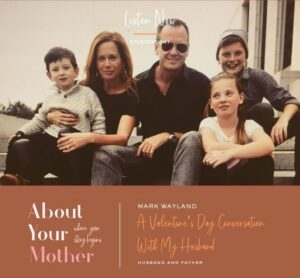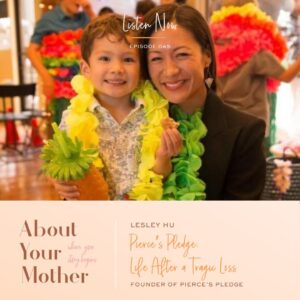Keshia Adeniyi-Dorsey is a family defender, educator, and activist who brings her experience with the foster care system into the heart of her work as a family defense attorney. Keshia tirelessly advocates for parents who risk losing their children to the system.
Past episodes in our What Happened Then series highlighted a time in history— at risk of returning— where primarily white single women were forced to relinquish their children. Often, we fail to realize similar systems are still in place today—although they look slightly different and affect communities of color.
Adoption and foster care are rooted in identities, those stolen and those hidden. To know these stories is to hope that one day we understand and we can change.
“How can I fight for folks— and I see the struggle— right, and that at least give my birth parents the opportunity to tell me their stories. As opposed to the stories that were being told to me about my parents.”
– Keshia Adeniyi-Dorsey
Becoming a Family Defender
While attending UC Irvine, Keshia’s professor researched Adoption and Safe Families. This work centered around the collateral consequence of incarcerated mothers losing their children due to being in custody for too long. This research inspired the career path that Keshia would take in becoming a family defender.
Federal legislation says if a child is in the foster system for 15 out of the last 22 months, states must initiate termination of parental rights proceedings. Unfortunately, this is a cap, not a ceiling, allowing individual states to be even stricter.
With the average sentence of a woman being 18 months, mothers are losing parental rights due to incarceration. We refer to this as the civil death penalty because there isn’t a meaningful mechanism to reverse your parental rights once terminated.
These sentences could result from any misdemeanor crime, including petty theft or an estes robbery. Most of the women that Keshia is fighting for go into custody and lose their children for nothing related to abuse or neglect of their children, but simply because they’re in custody for too long.
In regards to the data, of parents who go into the system, there is a 90% termination of parental rights (TPR) rate—it’s even higher when it’s the mother in custody. Those children are then placed in the foster care system.
Keshia’s Childhood
Keshia is very familiar with the system, as she was placed in it at two years old, ultimately aging out when she turned 18. Through her research and work around this subject, Keshia went through an incredible healing process as a consequence of her efforts.
As Keshia was practicing in court representing incarcerated parents, she realized it wasn’t just moms that were facing this injustice, it was entire communities. The reality is the system disproportionately impacts black and indigenous families.
As she learned more about the history of the infrastructure and the ways in which it has frayed and separated black families, it gave her more grace for her birth parents. This resulted in her deciding to find them and get to know them.
Meeting Her Family
Since adoptions within the foster system in California are closed, Keshia didn’t have the information needed to find her parents, however her family found her. Before the reunion, she’d struggled with foster guilt and told herself that her birth parents were dead.
The oldest of the eight children (whom Keshia had never met) hired a private investigator to find her family. This led to Keshia, who had met her oldest sister and her grandmother before, but was introduced to them as a family friend.
Keshia was able to connect with both of her birth parents. While her mother was living close by, her birth father was deported back to Nigeria in 2005. This didn’t stop her from traveling there to meet him.
The Woman Who Raised Her
Finding out that she’d unknowingly been in contact with her family really shook Keshia’s relationship with her mother.
Shortly after Keshia was impacted by the system, she was united with the woman who is her mom. Her mom was afraid to lose her children, so attempting to contact her biological family was considered risky. This was her mother’s way of protecting herself and Keshia from hurt, but they’ve since mended those issues.
“I love that you characterize it as complex because I think also owning that was also a part of healing for me and my mom—owning that and having those tough conversations. I remember sitting down with my mom and being like, ‘Listen, I understand that you’re trying to protect the space, you’re trying to also protect me, I think as well, right? But you have to also trust that you’ve done [a good job] you know what I mean?’ Nobody can replace my mom, just like nobody can replace my birth mother. That’s what makes things complicated. This inherent desire is to not just know where you come from, but also, it’s so much a part of your identity, right?”
– Keshia Adeniyi-Dorsey
To hear more about Keshia Adeniyi-Dorsey and her story, download and listen to this episode.
Bio
Keshia Adeniyi-Dorsey is a Family Defender, educator, and activist.
As a family defense attorney, Keshia represents parents when CPS investigates allegations of abuse or neglect. She uses her expertise, which includes nearly a decade of litigation as a trial attorney and her own personal journey through the foster system, to look beyond the surface of a CPS petition and see real families—their strengths, their traumas, their challenges, and their healing. Keshia also litigates Federal Civil Rights cases. She sues CPS when families are unlawfully separated. She also sues the government when CPS fails to protect children in the foster system from abuse.



